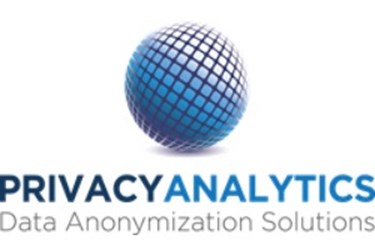Privacy Analytics' PARAT 6.0, The Next Generation De-Identification Software, Unlocks The Potential For Faster, Better Health Data Analytics

For the first time, health data analysts can now easily apply a real de-identification methodology that goes beyond simple data masking to produce high quality, custom data sets for specific secondary purposes while ensuring individual patient privacy and regulatory compliance
Ottawa, ON (PRWEB) - Privacy Analytics Inc. (http://www.privacyanalytics.ca) – the leading provider of software that safeguards and enables personal health data for secondary purposes – announced today the launch of PARAT 6.0 which for the first time gives health data organizations the ability to apply a proven de-identification methodology to complex data without the need for advanced technical skill and programming expertise.
Enabling personal health information for secondary purposes is critical to driving innovative analytics, deriving key insights and gaining new knowledge that can lead to faster and better treatments and cures for a wide range of health conditions and diseases such as cancer, HIV, and diabetes.
“There is a rapidly growing need to de-identify data to solve some of healthcare’s most challenging problems. As this need grows, so do concerns over privacy of personal health information.” said Khaled El Emam, Founder and CEO, Privacy Analytics. “To address this, organizations must de-identify personal information using a risk-based approach that goes beyond simple masking techniques in order to produce a high quality data set that meets their specific needs for sophisticated research and analytics. PARAT 6.0 allows healthcare organizations to quickly and easily apply a responsible de-identification methodology that ensures individual privacy and legal compliance.”
PARAT 6.0 enables data analysts to easily do what was previously possible only by programmers using complex programming languages and libraries. It allows the relationships between tables in complex relational datasets to be visually modeled and seamlessly managed through the whole de-identification project lifecycle as an integrated dataset. The combined power of these capabilities offers huge productivity improvements that can cut implementation times in half.
Specific PARAT 6.0 product features include:
- Interactive De-Identification Pipeline Designer with drag and drop capabilities to describe the flow of data from start to finish in a de-identification process
- Integrated Relational Dataset Modeling and Classification that ensures dataset integrity by remembering the relationships between tables and identifier types throughout the process
- De-identification strategy definitions that automatically build on the underlying relational dataset model and automatically suggest default de-identification strategies
- Allows saving and reuse of models, risk profiles, and pipeline components to save time and ensure consistency when defining new de-identification data flows
- Powerful de-identification algorithms that can work with very large data holdings and de-identify very small data sets
PARAT is being used by seven of the top 10 Fortune 500 healthcare companies as well as leading academic and research organizations to produce de-identified data sets for a wide range of secondary purposes such as research, data monetization, product development, marketing, and surveillance. For example:
- PARAT helped enable the development of a cancer “learning health system” where treatment and outcome data from previous patients is used to inform treatment options for new patients at the bedside
- PARAT is assisting in the treatment of HIV by allowing a consortium of organizations which gathers Electronic Medical Record information on HIV+ patients to de-identify these patient records yet retain the useful detailed information needed for complex analytics
- PARAT de-identified more than five years of clinical, prescription, laboratory, scheduling and billing data for more than half a million patients for an EMR vendor and their healthcare analytics vendor, allowing them to provide academic and pharmaceutical researchers, and clinicians with the latest insight on patient interactions without compromising personal information
- PARAT masked and de-identified data of 200,000 unique Individuals, 30,604 providers, 6,683,337 Medicaid claims, 6,410,969 Medicaid prescriptions and 4,085,977 immunization records to allow teams of researchers and technology entrepreneurs to analyze de-identified data sets to create new healthcare solutions
- PARAT is being used to de-identify data streams from tens of thousands of medical devices before that data is sent for diagnostic and other analytics
“Decreasing the risk of patient re-identification is paramount to the success of PARAT as it relates to partnering with companies such as ours,” states Len Branham, VP Healthcare Analytics for Radius Data Solutions in Columbia, SC. “This product has given us the ability to develop a data warehouse where the integrity of the information remains intact.”
“The biggest myth of data privacy is that it is impossible to de-identify data and easy to re-identify it,” said El Emam. “We have proven with our PARAT software and methodology that it is possible to protect patient and consumer privacy using the right tools. In fact, it can be achieved fairly easily. There is absolutely no need to sacrifice the incredible benefits of using de-identified personal health information for important analytics out of concern over data privacy. Ensuring privacy is a solved problem.”
PARAT and its patented algorithms resulted from the commercialization of ten years of research conducted by the Electronic Health Information Laboratory (EHIL) of the University of Ottawa and the Children’s Hospital of Eastern Ontario Research Institute.
A live webinar introcuding Parat 6.0 will be held on December 2nd at 12:00pm Eastern Time.
For more information on PARAT 6.0 and to register for the webinar, click here.
About Privacy Analytics
Privacy Analytics (http://www.privacyanalytics.ca) provides organizations with enterprise software to safeguard and enable data for secondary purposes using a risk-based approach that optimizes the analytic utility of de-identified data sets. PARAT automates the de-identification of structured and unstructured information from multiple sources in compliance with HIPAA and other regulatory requirements. It is the only company to offer expert training, off-the-shelf software, peer-reviewed methodology and valued-added services that protect the privacy of individuals while allowing organizations to share data for research and analysis.
Source: PRWeb
View original release here: http://www.prweb.com/releases/2014/11/prweb12333806.htm
